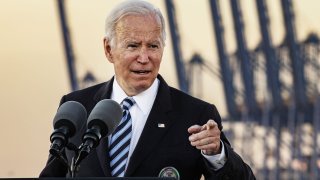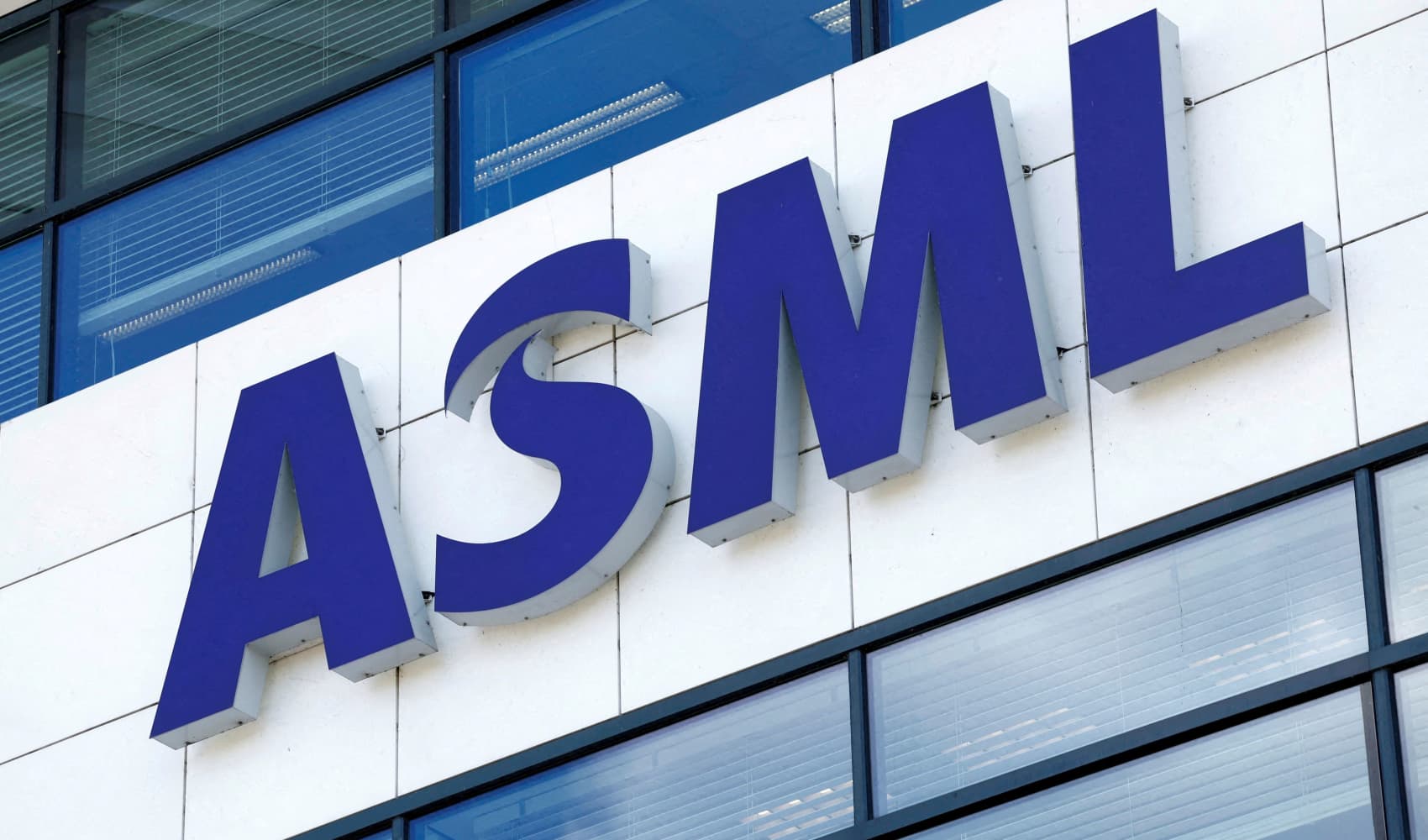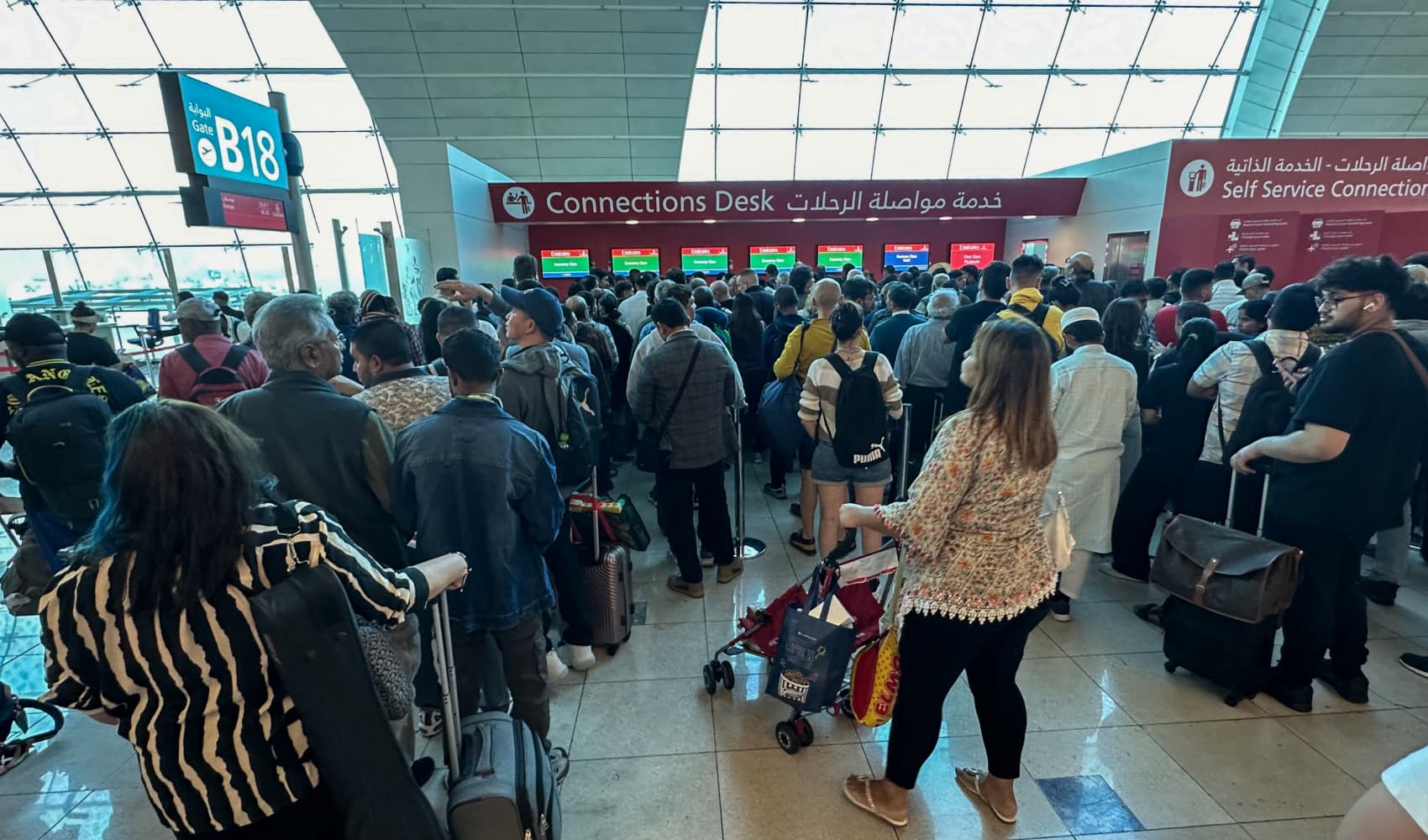
- As government economists work to combat soaring inflation and ease supply chain disruptions, President Biden is leaning on his natural ability to sympathize with average Americans.
- "Did you ever think you'd be paying this much for a gallon of gas?" Biden asked a crowd Wednesday during a speech in Baltimore.
- Yet with few concrete options available to tackle inflation, the White House is focusing much of its energy on fixing delays at major ports and other tangible supply chain issues.
As government economists work to find ways to combat soaring inflation and ease supply chain disruptions, President Joe Biden is leaning on his ability to sympathize with the economic fears of average Americans.
"Did you ever think you'd be paying this much for a gallon of gas?" Biden asked a crowd Wednesday during a speech in Baltimore. "In some parts of California, they're paying $4.50 a gallon," he said, incredulous.
Officially, the president's speech was about how the Port of Baltimore will benefit from the infrastructure bill Biden plans to sign into law on Monday. Yet from the start, it was clear the speech was about much more than cargo ships.
Feeling out of the loop? We'll catch you up on the Chicago news you need to know. Sign up for the weekly Chicago Catch-Up newsletter here.
"Today, I am here to talk about one of the most prescient economic concerns of the American people ... and that is getting prices down, No. 1," Biden said at the start of his speech. "No. 2, making sure our stores are fully stocked. And No. 3, getting a lot of people back to work while tracking and tackling these two above challenges."
Inflation and supply chain issues have plagued the U.S. economy for months, but new developments this week brought fresh urgency to Biden's remarks.
The latest inflation figures, released Wednesday morning, showed prices last month rose at the fastest rate in more than 30 years, 6.2% over October 2020. The news sent sent shivers through Wall Street.
Money Report
The inflation report followed new data released Tuesday about the billions of goods "out of stock" online as consumers begin shopping for the holidays.
"Too many people remain unsettled about the economy, and we all know why," Biden said in Baltimore. "They see higher prices. They go to the store or go online, they can't find what they always want, and when they want it. We're tracking these issues and trying to figure out how to tackle them head on."
Complicating this one-two punch for consumers is that other economic metrics show the country in the midst of a stronger-than-expected recovery.
October job growth outpaced expectations by some 80,000 jobs, while unemployment fell to a Covid pandemic-era low of 4.6%. Wages have risen 4.9% over a year ago.
But while the recovery looks strong to economists, Biden warned Wednesday that it does not look so powerful for average Americans.
"Everything from a gallon of gas to a loaf of bread costs more, and it's worrisome even though wages are going up," he said. "We still face challenges and we have to tackle them," he said.
In reality, however, economists say there is little that Biden, or any president, can do to halt inflation. The roots of the current price increases lie in post-pandemic pent-up demand and global manufacturing issues.
Nonetheless, Republicans are eager to tie the current pandemic-related inflation and supply chain woes to Biden's broader economic agenda – specifically his two major bills on infrastructure and social spending.
"Our early focus on runaway inflation and the growing supply chain crisis is hitting home with voters," wrote Indiana GOP Rep. Jim Banks in a recent memo to fellow Republicans. "We need to keep hammering away," said Banks, who chairs the influential Republican Study Committee.
With few concrete options available to tackle inflation, the White House is focusing much of its energy on fixing delays at major ports and other tangible supply chain issues.
On Tuesday, the administration rolled out a series of steps it is taking to address cargo backlogs at major ports, including $4 billion worth of construction at coastal ports and inland waterways. This work, led by the U.S. Army Corps of Engineers, is slated to begin within 60 days.
Increasing the supply of goods on U.S. shelves is also expected to ease some of the pressure on prices.
Long term, Biden argues that his Build Back Better agenda will put downward pressure on inflation by increasing labor participation and overall productivity. But these long-term effects will take years to impact the economy.
Right now, however, the future effect of Biden's agenda seems to matter little to voters who are struggling to deal with sky-rocketing food and fuel prices.
Only 42% of Americans approved of Biden's job performance in an NBC News poll in late October. The same poll revealed that 71% of voters believed the country was headed in the wrong direction.
Still, Biden insisted Wednesday that the short-term impacts of his administration's policies would soon pay off.
"Thanks to those steps we're taking, very soon we're going to see the supply chain start catching up with demand," he said. "So not only will we see more record-breaking job growth, we'll see lower prices and faster deliveries as well."






